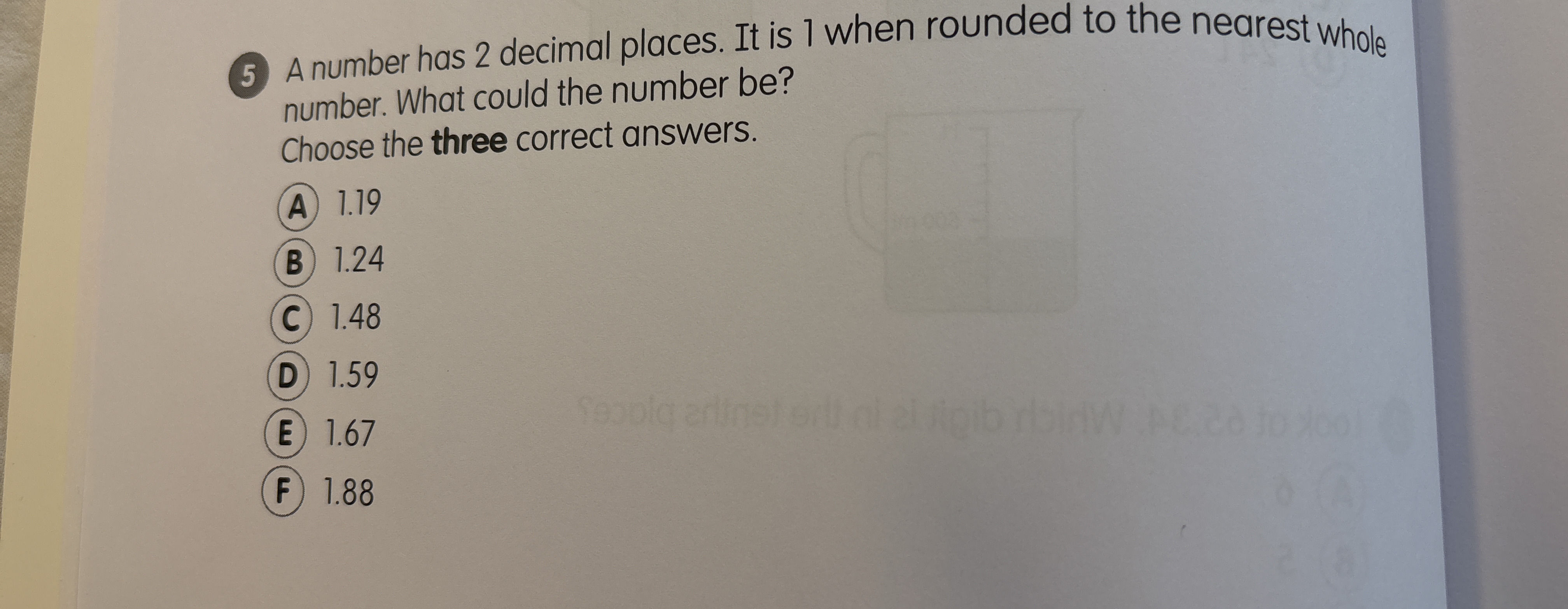A number has 2 decimal places. It is 1 when rounded to the nearest whole number. What could the number be? Choose the three correct answers.

Understand the Problem
The question is asking which three numbers could round to 1 when rounded to the nearest whole number. This involves understanding rounding rules for decimal places.
Answer
A (1.19), B (1.24), C (1.48)
Answer for screen readers
The correct numbers are A (1.19), B (1.24), and C (1.48).
Steps to Solve
-
Understanding Rounding Rules
A number rounds to the nearest whole number based on its decimal part. If the decimal is 0.5 or more, it rounds up to the next whole number. If it is less than 0.5, it rounds down. -
Identifying the Range for Rounding to 1
For a number to round to 1, it must be between 0.5 and 1.5 (0.5 ≤ number < 1.5). -
Finding Valid Options
We will check each option to see if it falls within the range of 0.5 to 1.5:
- A: 1.19 – falls within the range
- B: 1.24 – falls within the range
- C: 1.48 – falls within the range
- D: 1.59 – does not fall within the range
- E: 1.67 – does not fall within the range
- F: 1.88 – does not fall within the range
-
Concluding Valid Options
The valid options that round to 1 are A (1.19), B (1.24), and C (1.48).
The correct numbers are A (1.19), B (1.24), and C (1.48).
More Information
Rounding is a common mathematical concept used in various applications, from finance to data analysis. Understanding how to round numbers is essential for accurate reporting and estimation.
Tips
Common mistakes include:
- Confusing the rounding range, especially misidentifying numbers that are close to the boundaries (0.5 and 1.5).
- Not considering all options carefully, leading to missing valid answers.
AI-generated content may contain errors. Please verify critical information